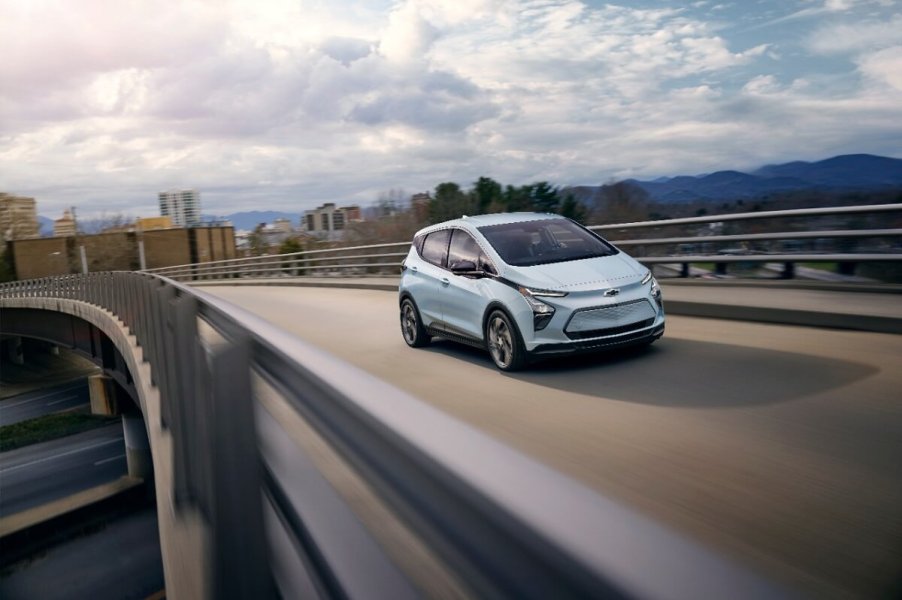
This Electric Vehicle Could Lose 32% of Its Range in the Cold
In this article:
It’s not shocking development that electric vehicles, or EVs, will perform differently at temperature extremes like the frigid cold. However, not every EV will lose the same range at freezing temperatures. For instance, Recurrent says the Chevy Bolt could lose as much as 32% of its range in the freezing cold. However, some EVs might retain more of their range.
How much range do electric vehicles lose in cold weather?

While a AAA study suggests that some electric vehicles could lose as much as 41% at freezing temperatures, some other studies indicate that specific models differ dramatically in range retention.
For instance, Recurrent says that some vehicles, like the Tesla Model 3 and Model S, could lose as little as 17% to 19%, respectively. Moreover, other EVs, like the Ford Mustang Mach-E with the 99 kWh architecture, could lose as much as 30% of their range in freezing temperatures. However, the Chevy Bolt has the most significant estimated winter range loss in the study, with 32% of its winter driving range compromised.
In the Recurrent study, battery science experts evaluated 7,000 electric vehicles across the United States, focusing on popular EV models. Seven of the 13 most popular electric vehicle models had verified losses, and the rest exhibited estimated winter ranges. Of the 13 EVs, the Chevy Bolt had the most dramatic loss at 32%.
What is the range of Chevy Bolt in winter?
Chevrolet claims the most recent Chevy Bolts offer a commendable 259 miles of EV range. However, the Recurrent study shows around 98% of its estimated range at 70 degrees Fahrenheit and about 66%, or 170 miles, at freezing temperatures.
Still, even with the impact of extreme cold, the Bolt outperforms some electric vehicles on the market with relative ease. For instance, the Mini Electric Hardtop will cover around 114 miles on a single charge in ideal conditions. That’s quite a bit less than a cold-comprised Chevy Bolt.
Do electric vehicles work in extreme cold?
While EVs could lose between 30 and 40% of their driving range in freezing temperatures, electric vehicles work in extreme cold. Of course, without waste heat from internal combustion applications to aid with heating, EVs have to tax their batteries to heat the cabin.
Still, without gas engines, owners can allow their electric vehicles to heat their cabins without causing environmental damage with tailpipe emissions. Moreover, owners should keep decreased ranges in mind when they commute in their EVs.
How cold is too cold for electric cars?
Any temperature above or below ideal conditions will result in decreased range. For instance, Recurrent’s study suggested that electric vehicles operating at 20 to 30 degrees Fahrenheit could lose as much as 35% of their range.
Still, many EVs have preconditioning technology that helps reduce winter range loss, often as part of a package. However, only some owners may know that turning down regenerative braking and accessories could save some range.
Keep up with MotorBiscuit for the latest hybrid and EV content!



